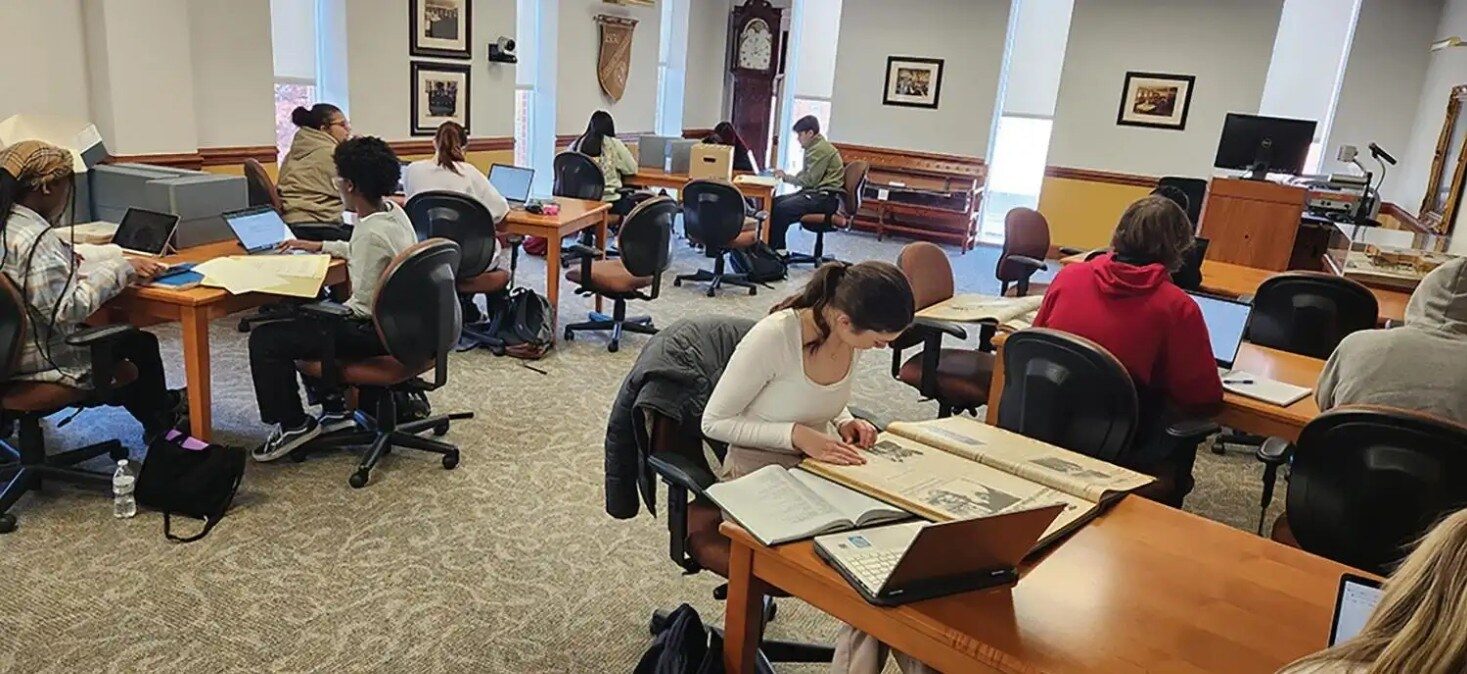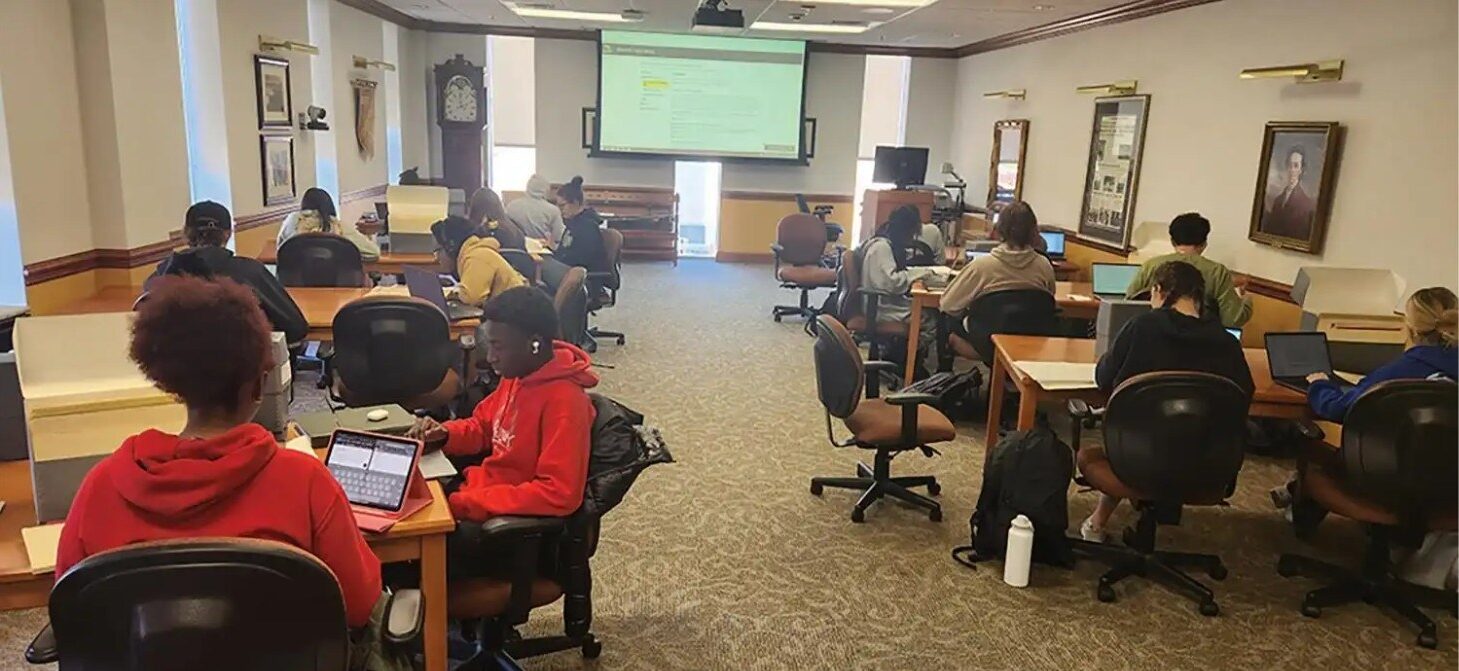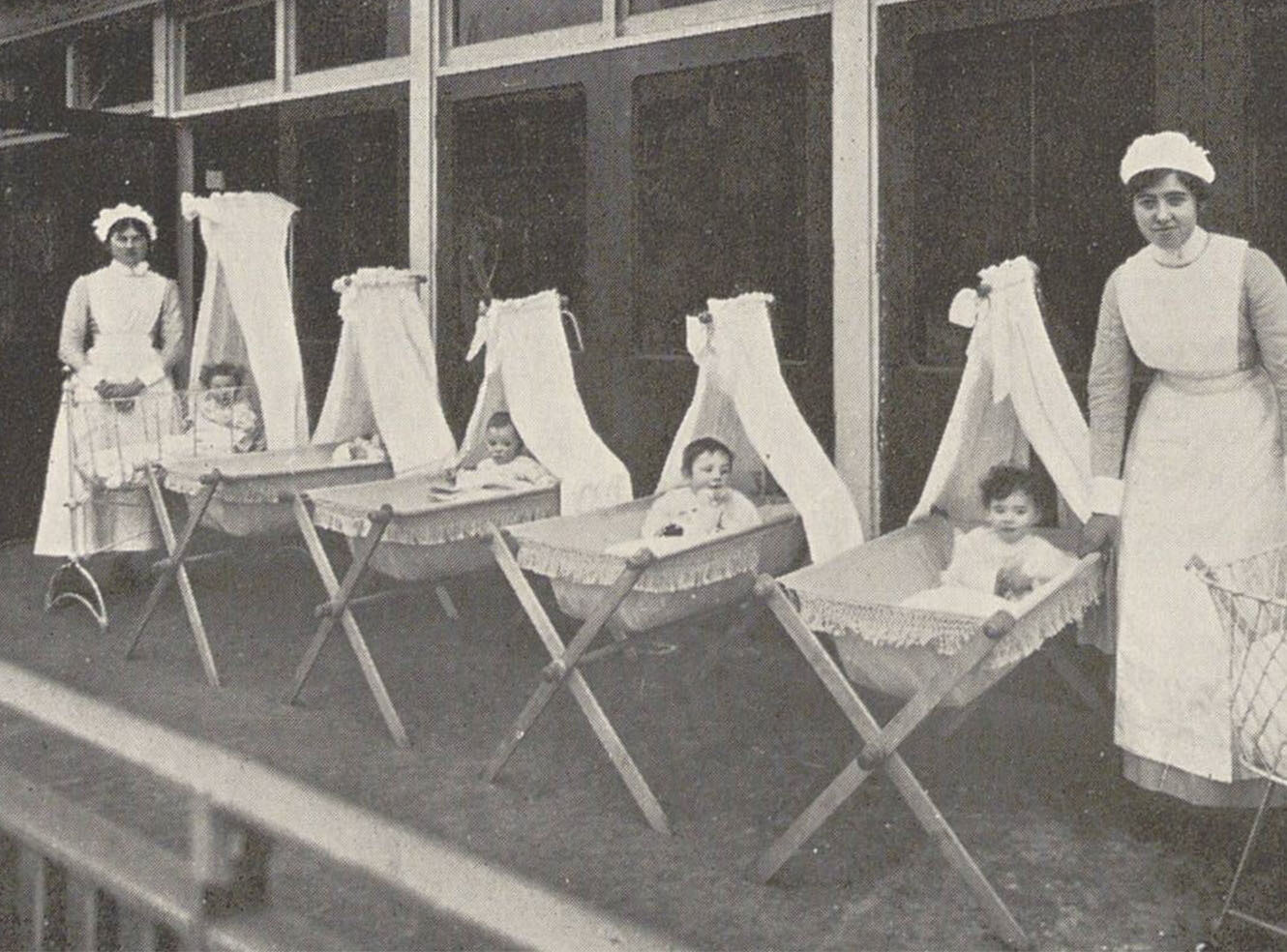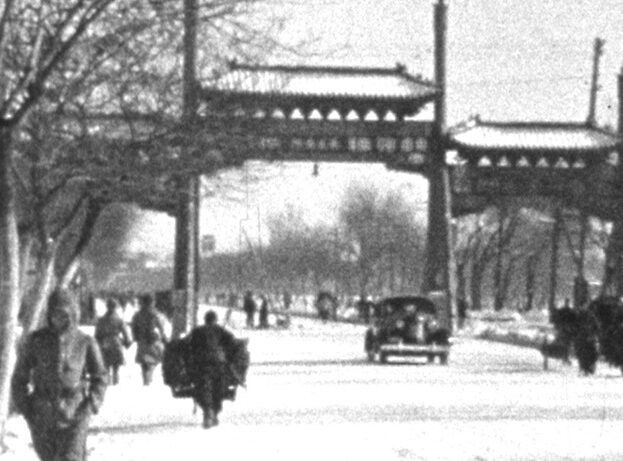Student success at the heart of Towson University
By Ashley Todd-Diaz, PhD, Assistant University Librarian for Special Collections and University Archives, Towson University and Felicity Knox, Assistant University Archivist Librarian, Towson University.
Towson University (TU) began as an institution for educating teachers for Maryland’s public school system in 1866. Because graduates of the school would go into the state workforce and impact generations of children, interest in ensuring students’ success within the academic setting has been of top interest to school administrators since its start.
The Special Collections and University Archives (SCUA) department was founded in 1970 as TU’s institutional memory and among the records it holds are many that document student experiences, including student newspapers, class and committee records, photographs, and yearbooks. We use these collections to support student success by engaging in a range of high impact practices that offer students hands-on research opportunities with our collections, apply information and archival literacy skills, and ultimately understand that they belong here, and each are part of the rich history of the institution.
Understanding why archives exist
Starting in 2016, SCUA began a concerted effort to engage more with current students by considering the personal relevance of archival records to our students. If we wanted current students to understand why archives exist, how they personally relate to students who have attended TU before them, and why their own records are valuable to our institution, we needed to encourage students to use the records we hold. To do this work, we placed an emphasis on partnerships both inside and outside of TU and developed several programmes over the last eight years. These include classes embedded in the archives, a student research initiative that investigates the history of intersectional diversity at TU, an undergraduate/graduate level internship programme offering the opportunity to learn archival skills, and a high school internship programme that provides hands-on experience with primary source collections.
Since adopting AM Quartex as our digital collections asset management system and discovery platform in 2021, we have woven this technology into these programmes. Due to AM Quartex’s flexibility and user-friendly interface, we have been able to use it as a way for students to more easily explore our digital collections, share their research in ways that we would not have been able to support in the past, and inspire other students to explore and contribute to the collections held in SCUA.
Empowering discovery
One of the required courses for first-year students at TU is a seminar, called the TSEM, which is designed to give students important skills for conducting research and writing a formal paper. This course includes library instruction sessions that address information literacy and how to navigate library resources; however, very few TSEM courses ever visited SCUA for instruction. In 2017, the Chair of the history department approached SCUA with the idea to develop a seminar focused on student experience in the 1960s and 70s that would introduce and encourage students to conduct research with a variety of primary and secondary sources. The course featured an embedded model that placed the students in SCUA’s classroom for one third of their class sessions to help them become comfortable with the resource. In the first few years of the course, not many archival records were digitised and those that were digitised were not easily accessed; so, most of the students’ research in the archives was paper based and slow-going. Following our migration to AM Quartex, students could access our digital holdings outside of our physical space, which was incredibly important considering that we were in the middle of a pandemic. Features like timestamped transcriptions, keyword searching, and faceted browsing allowed students to dive into the collections in ways they could navigate the paper records, making their searches more effective and their research experience more empowering.
Showcasing engagement
In addition to working with first-year seminars, SCUA also engages in high impact practices through supporting community-based learning and internships. A focus for these partnerships is to ensure students have opportunities to create learning objects during their time with us that they can bring with them into their future endeavors.
SCUA began working with Friends School of Baltimore (FSB) in 2016. A small cohort of students in a history class elective was introduced to our World War II collections and helped us develop a workflow for transcribing the materials. The class focused on understanding a moment in time by working with primary sources, and we created sessions to help them understand how the collection fit in with the history of the school as well as the overall time period. Since this programme first began, FSB students have transcribed hundreds of documents, and the class size has grown every year.
On the other end of the educational journey, SCUA also partners with graduate programmes in Library and Information Studies (LIS) to offer internships. An important piece of these internships is to provide hands-on learning opportunities through which students can apply the theories and best practices they have learned about in the classroom. By weaving AM Quartex into their learning experiences, not only do they have another competency to add to their resumes, but the students can also develop a range of artifacts to showcase their work in different ways. For example, a student who recently worked with us to process a collection of historic international stamps used AM Quartex to create the digital assets and associated metadata, as well as develop two digital exhibitions that allowed them to dive deeper into the context and cultural significance of the stamps. By using multiple features of the software, this student breathed life into this collection and demonstrated the work they had done to better understand these unique representations of different countries and cultures that provides other researchers with additional entry points to the collection’s research value.
New ways to share research
In recent years, SCUA has also sought partnerships inside and outside the university to support student research. Since research can take many forms, finding avenues to share the products of those endeavors is not always straightforward. One reason we had for migrating to a new digital collections platform was to open new avenues for sharing student research accomplishments.

The Unearthing Towson’s History Project is an initiative centered on student research and advocacy. This initiative was developed in recognition of and response to the fact that history has traditionally been written by the victors and those in power and, therefore, the records kept in archives have also traditionally followed this trend with many of the voices represented coming from places of power and privilege. Reflecting on its own collections, in 2017, SCUA began partnering with the campus’ Center for Student Diversity and the history department to identify the gaps in our records and begin welcoming new voices and perspectives into our collections through oral histories, digital content, and contextual research artifacts created by the students. The flexibility of AM Quartex’s options for presenting collections and individual assets allowed students to creatively consider how they would like to share the voices, stories, and broader trends they were investigating. Students can share the oral history records and transcriptions they have created but also develop associated resources within AM Quartex that situate those resources in a larger context. For example, one student studying the history of disability and accessibility on TU’s campus created a landing page that pulled together her oral histories with students and administrators, timelines and blog posts discussing disability and accessibility services offered on campus over time, digitised legislative documents that shaped these services, and a recommended bibliography compiled through their research. Although this student knew nothing about web design, Quartex’s user-friendly interface empowered them to create a welcoming and informative resource that passes their in-depth research forward to other students and researchers.
In 2018, SCUA welcomed a summer intern from Notre Dame Preparatory high school (NDP). The students in this programme spend about 20 hours total with us over the course of a week, so finding a discreet project for them was a bit of a challenge. With the introduction of the wiki on our website, we decided to invite the NDP students to research topics that interested them and then compose a wiki entry which also names the NDP student as author. We give them a worksheet which helps guide them through the research and composition process, including links to parts of our digital collections they wish to include. Ultimately, the finished product is something they can share with potential admissions committees, faculty members, or employers to show their experience working with primary materials.
Conclusion

Since 2017, Towson University’s Special Collections and University Archives department has established partnerships across campus and beyond to find ways to engage students more fully with the records we hold. In return, these relationships have helped us expand our digital collections, which gives researchers more access to our records, as well as demonstrating effective partnerships to our individual communities. This work has been more fruitful because of the unique features of AM Quartex which have allowed all of us to imagine new ways of sharing the results of our collaborations. Students can easily see themselves not only in the records we hold but also in the work we do to continue to preserve the history and memory of all the members of the Towson University community. For us, this is the hallmark of supporting students as they continue their educational and professional careers.
This article was first published in Against the Grain, September 2024.
Recent posts

AM’s new resource, A Global History of Epidemics, 1800-1970, offers interdisciplinary researchers unique primary sources, interactive tools from maps to timelines, and expert essays, to explore disease history, colonialism, and public health advancements within the British Empire and beyond.

AM's latest publication provides a vivid visual exploration of twentieth-century China, showcasing historical and cultural transformations. Enriched with powerful accessibility and discovery tools, and contextual resources, China on Film provides an invaluable resource for studying modern Chinese history and early film-making.
